Working in Saskatchewan As An International Student
As many of you have probably heard by now, the federal government has temporarily lifted the cap on off-campus work hours for international students. Previous to this lift, international students who worked more than 20 hours per week off-campus were in violation of their study permit conditions.
This half-time work cap has historically raised concerns of reduced earning potential, work experience, and quality of life. We’ve had clients with off-campus jobs who have had to turn down requests from their employers to put in more hours. Now they don’t have to.
Why Was The Off-Campus Work Hours Cap Lifted?
In short, Canada is low on workers. We’ve been experiencing labour shortages as a result of the pandemic for almost two years now, Saskatchewan included. 36.9% of all Canadian businesses are struggling to recruit skilled employees.
What better way to address this problem than by tapping into the underutilised work of international students? Fast food, hospitality, and retail will be most positively affected by this news, with many international students working within these industries.
This temporary legislation is a pilot project running from November 15, 2022 to December 31, 2023.
Who Is Eligible To Work More?
This program is automatically available to those who submitted a study permit application by October 7, 2022 or had a study permit prior to that date. In order to qualify, you must be enrolled in post-secondary education full-time, have a study permit, and have off-campus work-authorization on said study permit.
Immigration Minister Sean Fraser has estimated that 500,000 students will be eligible.
What Are The Benefits to International Students?
This temporary project will come with a great number of benefits for international students studying in Saskatchewan. In fact, the benefits are so numerous that international students are already urging the government to keep the cap lifted permanently.
Potential advantages of this temporary measure include:
The opportunity to make more money. This will allow for more security in paying bills, flexibility in lifestyle, and overall higher quality of life.
Improved mental health—financial stress is one of the most common and harmful types of stress.
More work experience, making international students more attractive candidates for future jobs or postgraduate studies.
The option to accelerate work program eligibility. For example, international students in Saskatchewan must accumulate 780 work hours for the SINP Student Program, a process that takes 6 months of full-time work, but is prolonged when students are limited to 20 hours/week.
The opportunity to provide for family. Around 15% of international students are married, and about 5% married with children. Higher earning potential means better quality of life for entire families.
The only potential downside to this measure is the possibility of students neglecting their schoolwork in favour of working more. However, Canadian students are given the option to work full-time and manage classes and many manage just fine. International students should be allowed this same option.
Will The Temporary Cap Lift on Off-Campus Work Affect SINP?
Saskatchewan Immigrant Nominee Programs (SINP) are one of the more straightforward ways to gain permanent residency in Canada.
The temporary cap lift on the 20 hour work week will affect some SINP categories, but not all. Each category requires a certain number of work experience hours, and this change can assist prospective applicants to qualify more quickly for certain categories like International Skilled Worker and the Hard-to-Fill Skills Pilot and the Student (particularly for Saskatchewan graduates). For example, in the SINP Student Category, a Saskatchewan graduate who has to prove they’ve worked their required 780 hours can accumulate those hours more quickly with the new opportunity to work full-time.
Can Edge Immigration Help You Apply for SINP?
Negotiating the Saskatchewan Immigration Nominee Program can be a complex undertaking. Fortunately, it’s a process Edge Immigration specializes in guiding you through.
SINP has many different categories, each with different eligibility criteria. We help determine the best SINP category for a client, and work with them through the application and eligibility process.
What Can Edge Immigration Do For International Students in Saskatchewan?
Applying for post-graduate work permits and extending study permits is a high-stress process for international students. If deadlines are not met, or criteria not followed, they are subject to rejection. This could be a life-changing problem to run into, so the Edge Immigration team works hard to ensure all is in order for international students seeking to study and work in Canada and qualify for permanent residence down the road.
The Edge Immigration consultants address questions such as:
Am I in the right job for me at this time?
Is my choice of studies going to help or hinder me?
What should my employer be aware of?
How can my employer register for SINP?
How can I prepare for after graduation?
Do I need to keep my payslips? (Yes!)
We hate to see what happens when international students don’t remain conscious of their eligibility. That’s why we’re invested in keeping the lines of communication open with our clients—to keep them on track and informed. No question is a silly question when it comes to your immigration status.
Edge Immigration is here to help international students thrive. Even if all we do for you is push you over the finish line or keep you advised on deadlines we’ll feel that our mission has been accomplished.
If you’re an international student or recent graduate wondering what to do to improve your chances of being in Canada long-term, we can help! Reach out to us for a consultation, and bring all of your questions and concerns! We are here to help you succeed.
